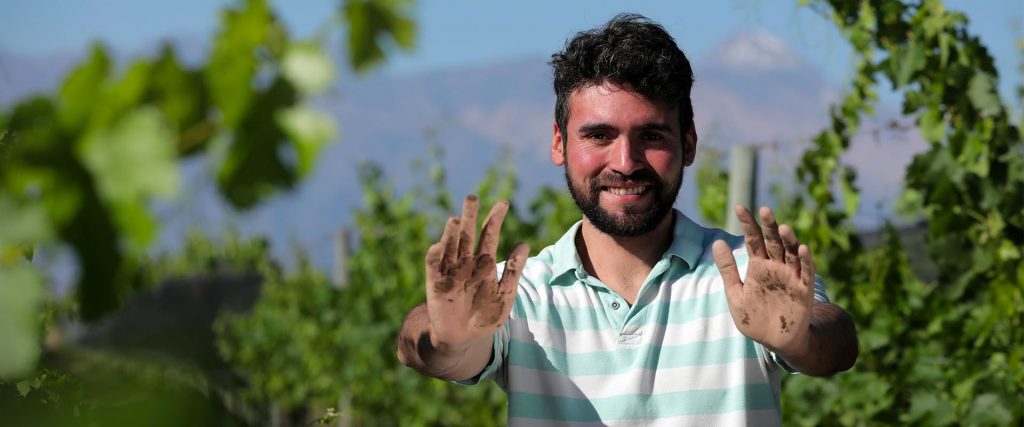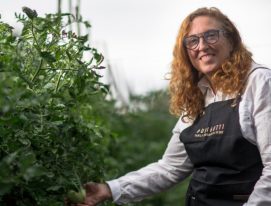At the foot of the Andes, in the heart of Gualtallary (Tupungato, Mendoza), the organic vineyards of Domaine Bousquet are the perfect backdrop for our conversation with Franco Bastías, the winery’s agricultural engineer, about one of the enterprise’s latest accomplishments: they’ve just obtained Regenerative Organic Certified (ROC) status from the Regenerative Organic Alliance (a non-profit, California-based organization of farmers, business leaders and experts in soil health, animal wellbeing and social equity).
Today, the winery, which has been run on organic principles since it was founded in 1997 and subsequently moved on to biodynamic methods, is one of the four wineries in the world (and the first outside of the United States) to meet the stringent requirements of this certification.
Franco Bastías, the Head of Agriculture at the winery, has worked at Domaine Bousquet since 2015 and in this interview shares the working philosophy that owners Anne Bousquet and Labid Ameri have implemented since day one.
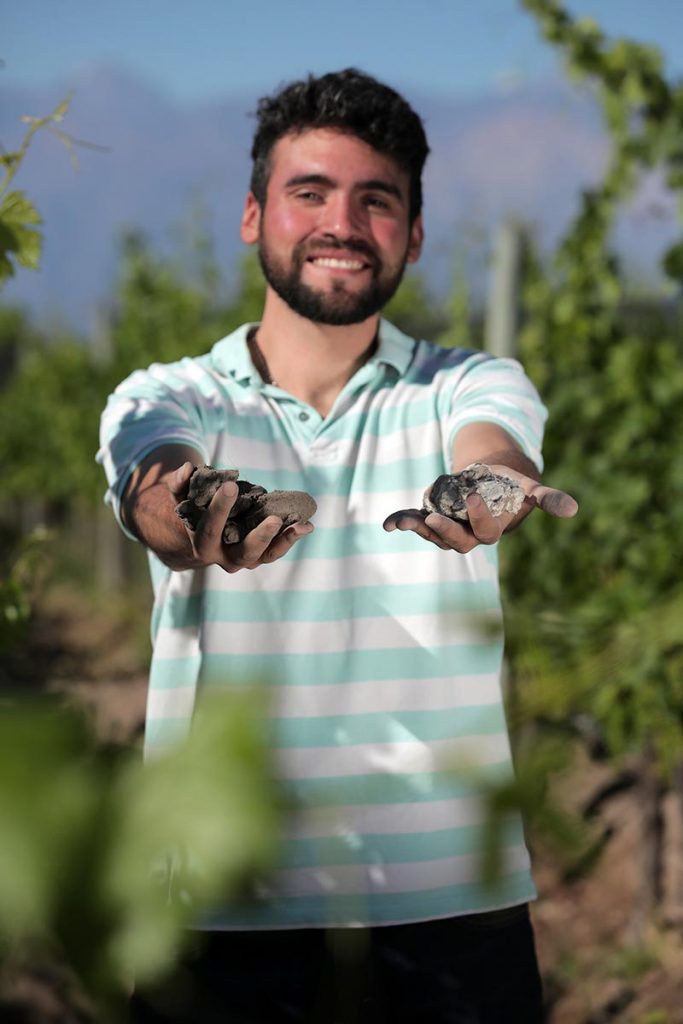
Interview with Franco Bastías, the agricultural engineer at Domaine Bousquet
What does it mean to have achieved ROC certification?
It’s very important. It was always fundamental to us to get our practices certified, right from the start, with the first planting. We already had organic certification, and we work in accordance with the Wineries of Argentina Sustainability Protocols, but we still had to certify our work on soil regeneration, which is the focus of the ROC.
What’s the difference between this certification and others?
First you have to understand the difference between organic and sustainable. Organic production is governed by three basic pillars: avoiding the use of artificial chemical and genetically modified products and encouraging biodiversity. With sustainability, the concept focuses on using resources in a way that preserves them for future generations.
But working organically surely means thinking about future generations…
Not necessarily. You can work organically and still consume water irresponsibly, for example. That wouldn’t be preserving resources for future generations. ROC is a third dimension; soil regeneration. So there’s organic, sustainable, and now environmentally regenerative. It’s a step further in which the goal is to create more soil and improve its quality. To leave it better than when we found it. It’s a very new concept that requires great responsibility from producers, from a technical point of view.
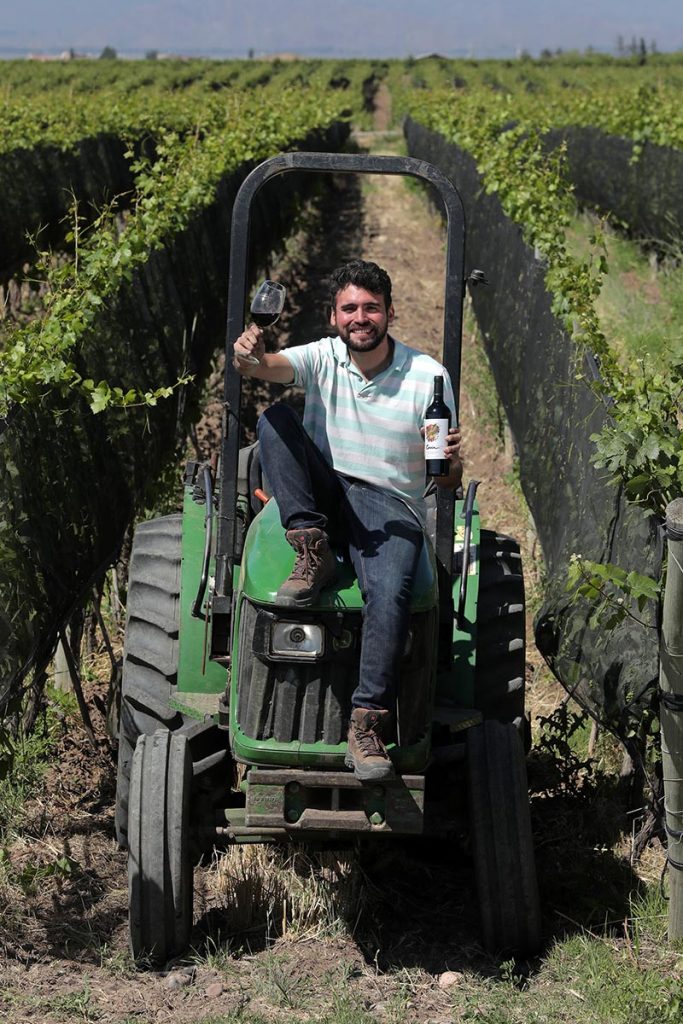
Franco Bastías, how does it involve greater responsibility?
30 years ago, the technical side was especially focused on yields and achieving quality grapes by any means necessary. Today, the means matter too and we strive to care for our crops and achieve equilibrium without reducing the quality or yield. That’s the challenge.
What work did you have to do to achieve ROC certification?
In Mendoza water is the fundamental factor, it’s a very scarce resource, so our methods for preserving water were the first aspects we needed to present. Drip irrigation is much more efficient but even so we have to demonstrate in figures how we reduce consumption of the resource. That’s not required of organic certification.
ROC certified that level of efficiency. Then came all the work we do to protect vegetation coverage and biodiversity. The whole process is structured around an understanding that we’re not a grape factory. This is an ecosystem and we’re striving to achieve self-sustainability.
What are the pros and cons of applying this working philosophy?
ROC certification brings with it greater risk to our crop because it adds a level of complexity and there are no prescriptions for success. Production methods that follow a set of instructions, with fertilizers, herbicides and the rest, are more of a “sure thing” in that they will produce standardized wines, some of which might be very well made, but they’re a different kind of wine. The state of the country doesn’t help, it can be hard to step out of your comfort zone.
What we’re doing here is to stay alert to what is going on in the soil, at the vineyard and with the plants. We run it all through a fine tooth comb and this is reflected in the high quality of our wines, but it’s not just that, it’s about cultural change.
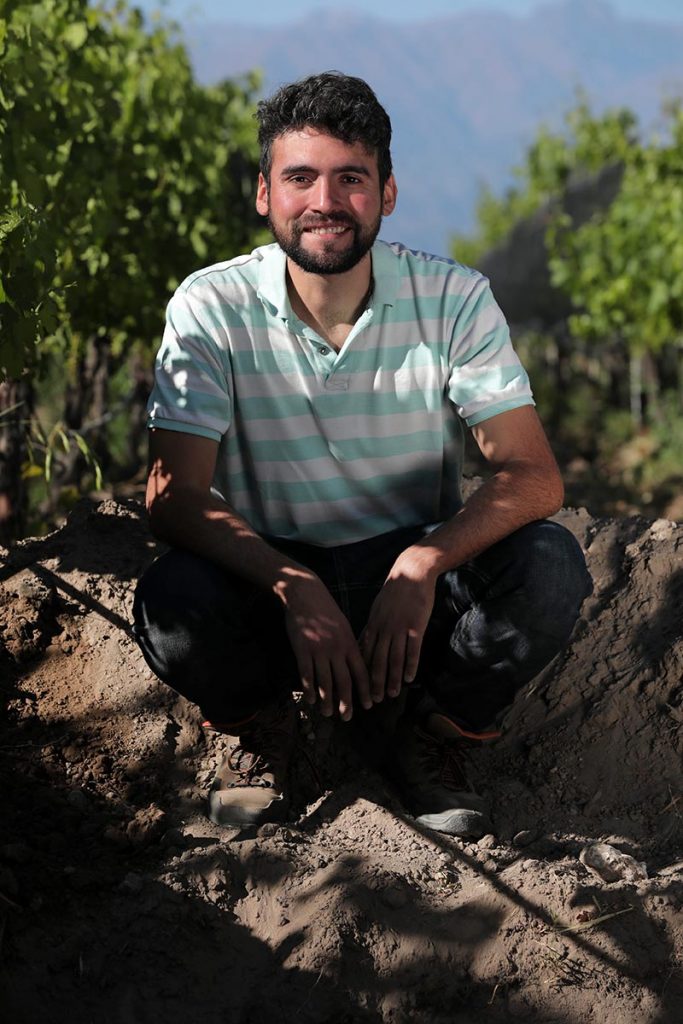
What kind of cultural change?
I’m seeing quite stark polarization in our industry and elsewhere. Some say that conventional production is bad and organic is good and being ecological means not producing so many grapes but that doesn’t matter because it’s better. But the truth is that no one wants to drink a bad wine, as organic as it might be. No one thinks about environmental charity when they’re buying a wine so you need to find a balance and not see everything in black and white. I don’t think conventional wines are bad and the others are good.
The change in paradigm is more about understanding how things are and taking responsibility for achieving the same or better results at a lower environmental cost.
Franco Bastías, do you believe that this is a challenge for the Argentine wine industry in the future?
I think it’s a challenge for Argentine wine and everyone else, for our future home. It’s something we need to reconceive at the technical level first. We need to start making a little more effort in a good way and stop just following recipes. Even when nature is in charge, there still a lot you can do.
Will organic, sustainable and regenerative become a trademark of Argentine wine?
I hope so. On the climatic level, Argentina is in an excellent position to implement organic agriculture. In France, where they get 800 millimeters of rainfall a year, it’s really very difficult. We have everything you need to respect the environment: the Andes act as a barrier to disease and that’s a key factor. I think that organic will be conventional within 10 years. The world is going to be organic, that message needs to get through. I have faith that things will click on a cultural level.

